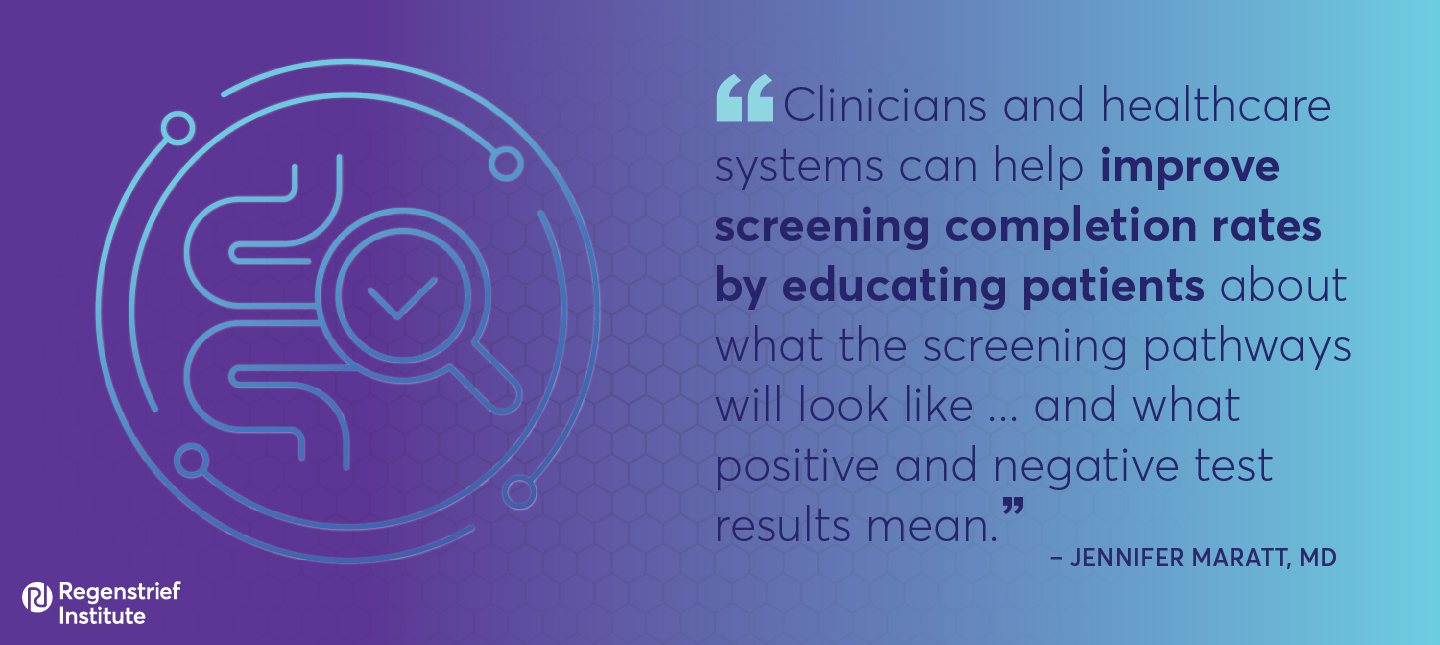Screening for colorectal cancer presents a unique opportunity unavailable for most other types of cancers. Screening allows for the detection of both precancerous polyps and cancer, enabling clinicians to intervene and reduce the chances of future development of new or more advanced malignancy. However, gaps in the screening process exist. One of the most critical gaps, according to an editorial published in JAMA Network Open, is the lack of timely follow-up with a colonoscopy after a positive stool-based test.
A positive fecal immunochemical test (FIT) or multitarget stool DNA screening test requires follow up because these results suggest the presence of an abnormal growth such as a polyp or cancer. Improving follow-up rates with colonoscopy following positive results of these stool-based tests would decrease colorectal cancer incidence and deaths.
“If a stool-based test is negative, a follow-up screening test is recommended in a one-, or three-year interval depending on the type of test that was done. However, if a stool-based test is positive, regardless of the type of test that was done, a follow up colonoscopy is recommended. Follow-up should be as soon as possible. But studies show that in some settings, individuals who have positive stool tests often don’t follow up with a colonoscopy to determine whether they have cancer or polyps,” said editorial corresponding author Jennifer Maratt, M.D., M.S., of the Regenstrief Institute and Indiana University School of Medicine. “The gap is substantial with some centers reporting fewer than one in five of these patients having a follow up colonoscopy.
“This gap in follow-up is the elephant in the room of cancer screening – something important we need to talk about, but often don’t. Screening with stool-based tests is a two-step process. Clinicians and healthcare systems can help improve screening completion rates by educating patients about what the screening pathways will look like when selecting invasive tests such as colonoscopy, or non-invasive tests, such as stool-based tests, and what positive and negative test results mean,” she said. “By using quality measures like the colorectal cancer screening completion measure, we will be able to capture data on screening completion when a two-step process is involved and have the opportunity to address this gap. For example, we could learn from high performing centers about processes they have in place to ensure timely follow-up.”
Although stool-based colorectal screening tests are typically self-administered in the patient’s home, clinicians are involved in the process. They order the test and typically provide it to the patient. Test results are sent to the clinician and the patient is then notified of the results and given recommendation by their healthcare provider for next steps, if any, in the colorectal cancer screening process.
“Refining, testing and implementing two-step colorectal screening measures are important, necessary, and achievable goals,” said editorial co-author Thomas Imperiale, M.D., of the Regenstrief Institute and IU School of Medicine. “Closing or even narrowing the post-positive stool test gap and getting these individuals in for colonoscopy is among the best use of this resource and is expected to reduce colorectal cancer incidence and mortality.”
Authors of “Closing a Gap in Colorectal Cancer Screening” and affiliations are
Dr. Maratt1,2,3; David A. Leiman, M.D., MSHP4,5; and Dr. Imperiale1,2,3.
1Indiana University School of Medicine, Indianapolis, IN
2Richard L. Roudebush VA Medical Center, Indianapolis, IN
3Regenstrief Institute, Inc. Indianapolis, IN
4Division of Gastroenterology, Duke University School of Medicine, Durham, NC
5Duke Clinical Research Institute, Durham, NC
Jennifer K. Maratt, M.D., M.S.
In addition to her role as a research scientist with the William M. Tierney Center for Health Services Research at Regenstrief Institute, Jennifer K. Maratt, M.D., M.S., is an affiliate investigator for the Richard L. Roudebush VA Health Services Research and Development Center for Health Information and Communication, and assistant professor of medicine in the Division of Gastroenterology and Hepatology at Indiana University School of Medicine.
Thomas F. Imperiale, M.D.
In addition to his role as a research scientist at Regenstrief Institute, Thomas F. Imperiale, M.D., is a core investigator for the U.S. Department of Veterans Affairs Health Services Research and Development Center for Health Information and Communication, Richard L. Roudebush VA Medical Center. He is the Lawrence Lumeng Professor of Gastroenterology and Hepatology at Indiana University School of Medicine as well.











